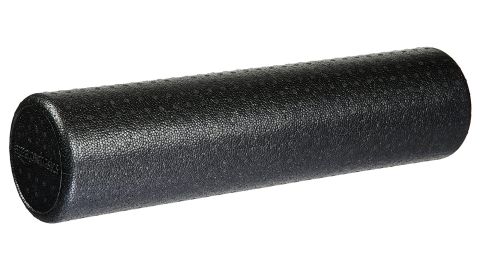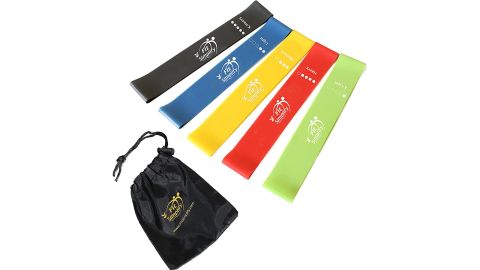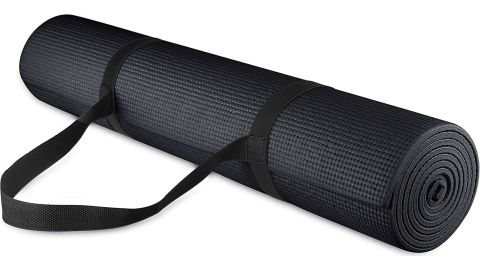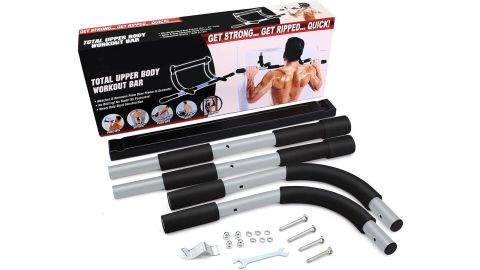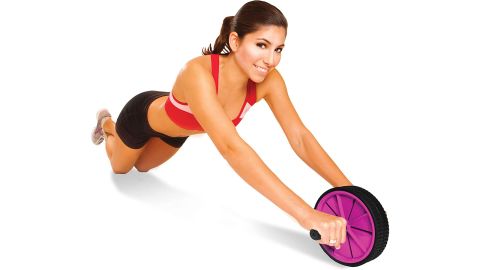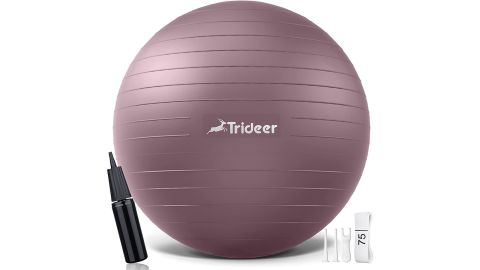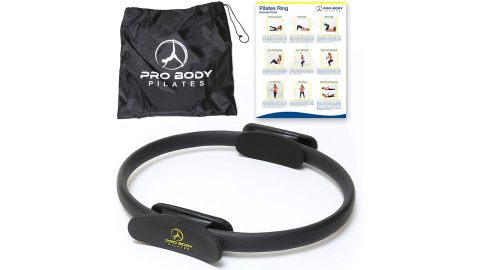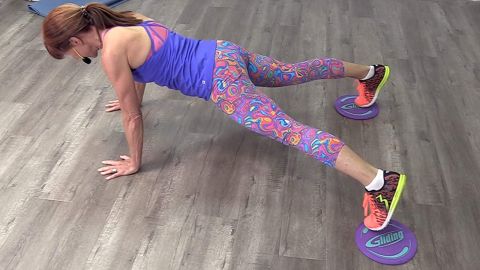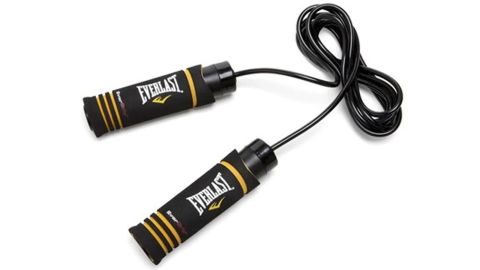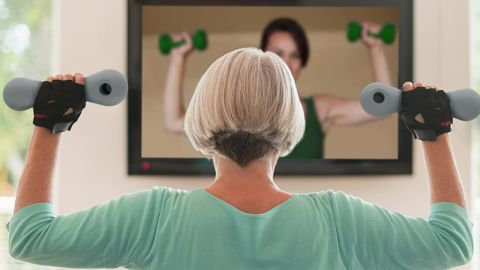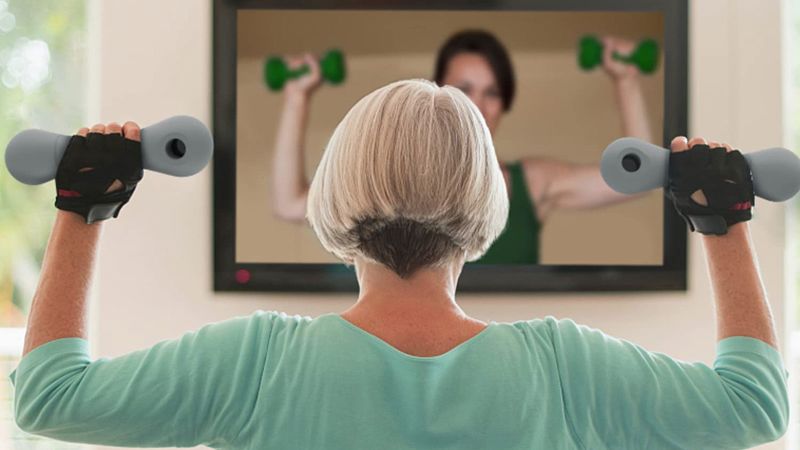
With so many pieces of high-tech fitness equipment taking over headlines and social media, it’s easy to forget that at-home exercise gear doesn’t have to cost more than a month’s rent or mortgage. In fact, just a few strategic, budget-friendly purchases can help you organize and optimize your at-home workout sessions, whether you’re a beginner or experienced exerciser, and whether you’ve got 10 minutes or a solid hour.
Weekly exercise recommendations, courtesy of the Physical Activity Guidelines for Americans, add up to 150 minutes of moderate aerobic activity or 75 minutes of vigorous aerobic activity a week (or some combination of the two), plus muscle-strengthening activities at least twice per week. Despite what companies would have you believe, you don’t need a $2,500 exercise bike or bulky racks of pricey free weights to get your heart rate up or make your muscles quiver (and no, we’re not suggesting you do bicep curls with soup cans).
Ready to turn any space into your own gym? We polled a variety of fitness experts and asked for their picks on the best compact, affordable at-home exercise gear.
Best for affordable DIY massage
“Foam rolling is a form of self-myofascial release, which is a technique used to release muscle tension and increase mobility and flexibility,” says Michael Hamlin, a certified strength and conditioning specialist and founder of EverFlex Fitness. You can use a 12-inch foam roller like this to target everywhere from your back to your calves, and even though this one rings up at under $10, “the high-density foam is able to withstand the weight and pressure of the body so it won’t break down with regular use, and provides greater pressure to the muscles, which can help to break up knots more effectively,” says Hamlin.
Best budget-friendly strength-training tool
Resistance bands are an incredibly versatile and portable strength training tool, and this set includes five for less than $15. “One of the best ways to get smaller, underactive muscles fired up is to use a lighter tension resistance band,” says Hamlin. Placing one around your ankles and stepping to the side will activate your glute medius, while looping it around your feet and marching in place strengthens the hip flexors. As you get stronger, you can easily adjust the intensity by swapping out bands. Plus, “a high-quality natural latex band is a better option for comfort because they prevent chafing,” says Hamlin.
Best foundation for at-home workouts
A good yoga mat isn’t just for asanas. It can be a stable foundation for bodyweight exercises and strength training — unlike your slippery wood floor or uneven rug. “This one is 1/2-inch thick, providing ample cushioning for your joints, but not so thick it challenges your balance,” says Hamlin. And “the non-slip surface helps prevent injuries during dynamic movements,” he adds. A supportive spot in which you can safely exercise means working out will be more comfortable — and the more comfortable you are, the more likely you are to stick with it.
Best for easy installation and upper body work
Don’t worry, this pull-up bar won’t damage your door frame — it attaches via a lever system, so there’s no drilling required. And once it’s in place, “you can use it not just for pull-ups and chin-ups, which target multiple muscle groups, including your latissimus dorsi, biceps, forearms, and shoulders, but hanging leg and knee raises, which engage your abs, hip flexors, and lower back,” says Erik Brown, a UESCA-certified running coach and ACE-certified personal trainer.
Best for upgrading crunches
Forget crunches — an ab roller will fire up more than your core. “As you roll the wheel away from your body, it requires balance and stability, engaging your abs, back, shoulders, and arms with progressive resistance,” says Brown, meaning the further you roll it out, the harder you’ll have to work to bring it back towards your body. “This affordable option is lightweight with a compact design, making it easy to store and transport, and it’s designed with non-slip handles that provide a secure grip,” he says.
Best for working on balance
“The most important benefit of using an exercise ball is challenging your balance,” says Olesia Stefanko, a fitness program developer for HitFit. Imagine doing a crunch on the ball versus the floor, she says; the ball naturally moves, and you have to engage more muscles to try to keep in place while performing the exercise. (On the flip side, “using a ball can take pressure off your back in exercises like squats or wall sits,” she says). “I like this specific fitness ball because it’s made from soft yet very pressure-resistant material, providing a great balance of flexibility and stability,” says Stefanko. “The matte surface also makes it safer to use when sweaty.”
Best for targeting specific muscles
“A Pilates ring is called a ‘magic circle’ for a reason: It’s a versatile tool for intensely targeting your muscles, especially your inner thighs, core, and arms,” says Stefanko. And it’s not just for Pilates; it’s simply designed to add resistance to certain exercises—which could be as simple as placing it between your knees while sitting and squeezing in and out with control, she explains. “This specific Pilates ring is great in diameter, the pads are of an optimal size and the ratio of material softness and resistance is perfect,” says Stefanko. “It serves well in the long run, not snapping or losing its spring.”
Best for improving simple moves
“Gliders are an easy way to take bodyweight exercises — like planks, knee tucks, mountain climbers and pikes — to the next level,” says Jilliann Schembri, an ISSA-certified trainer; because they slide over the floor, they add an element of instability that better engages your core. They’re virtually weightless, which makes them easy to travel with, and “the material these gliders are made of doesn’t get ‘stuck’ as you glide, is perfect on tile and won’t scratch your wood floor.”
Best for a cardio boost
Jumping rope is a surprisingly effective form of cardio. “By working multiple large muscle groups at the same time, it forces blood and oxygen to move around our bodies, keeping our heart rate elevated nearly the entire time,” says Schembri. “I love this weighted rope specifically as opposed to a non-weighted one because the slight increase in weight will create more resistance as you jump, which is crucial for muscle toning and strength building benefits.”
Best low-cost smart weights
There’s no need for a ton of heavy weights littering your space. “I believe in using lighter weights and higher repetition,” says Whitney Berger, certified personal trainer, yoga instructor and owner of WhitFit NYC. Constant tension can be equally challenging as hoisting multiple times the weight for just a few reps. “With constant tension training, keeping track of your reps is important, and these smart dumbbells sync with an app via Bluetooth to help you monitor your workout.” Beyond reps, they can also record how many minutes you’ve worked out and have a built-in countdown timer.

